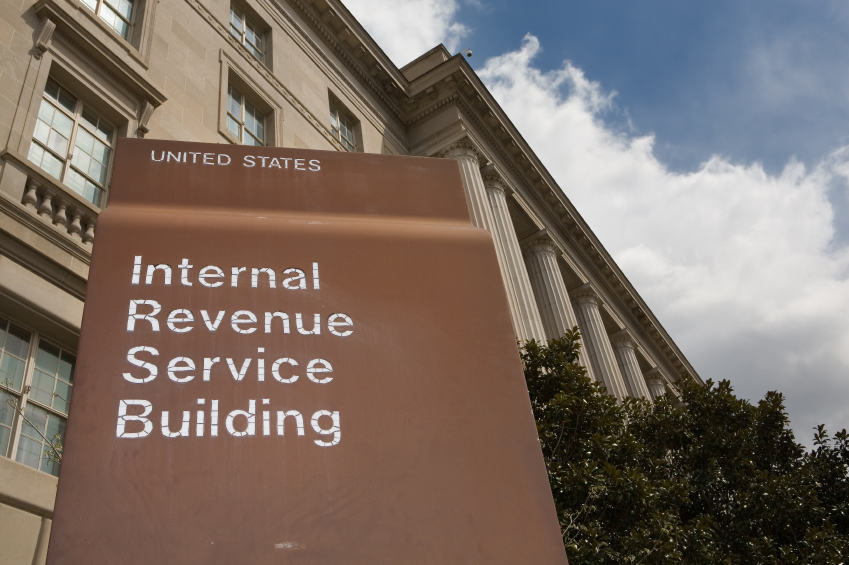
Advertisement
As President Trump moves forward with attempts to drain the swamp, despite the interference from deep state federal bureaucrats, the Internal Revenue Service appears to be a good place to start.
You’ll recall that the IRS under Obama singled out Tea Party and other right-of-center groups for excessive scrutiny when they applied for nonprofit status. This level of intrusive oversight was never applied to equivalent left-wing entities. Many believe that this politicized review was a form of voter suppression in the run-up to the 2012 presidential election. Obama’s Justice Department conducted a sham investigation into the scandal, and no one was ever held accountable in the stonewalling agency, although Congress is apparently still probing the matter to some degree. Two U.S. House members just called upon Attorney General Jeff Sessions to reopen the investigation.
One top IRS official took the Fifth Amendment (i.e., invoked the constitutional right against self incrimination) to avoid testifying before the House. The official was declared in contempt of Congress, but the U.S. Attorney for the District of Columbia declined to prosecute the official on criminal contempt charges. After being suspended with pay, the official later retired from the IRS with a full pension.
In a nationally televised 2014 Super Bowl interview with Bill O’Reilly, Obama prejudged the investigation when he claimed that there wasn’t a “a smidgen of corruption” in what the IRS did to the grassroots conservative groups. (RELATED: Read more about government corruption at Conservative.news.)

Inspector General: IRS Violated Taxpayer Rights
According to a 72-page Treasury Department Inspector General’s report about a separate matter unrelated to politics, the IRS seized the bank accounts of ordinary citizens and businesses suspected of engaging in a process called structuring. IRS agents went that route because it was less labor intensive than going after real wrongdoers, such as drug traffickers and terrorists and other crooks engaged in money laundering. The IG report emerged as the nation’s annual tax filing deadline approached.
Structuring is a way to avoid federal reporting requirements for cash deposits of $10,000 or more by deliberately splitting them up into lesser amounts. “If a taxpayer is structuring transactions to avoid the reports — say multiple transactions just below the $10,000 mark –it subjects structured amounts to civil or criminal forfeiture proceedings,” Forbes explained. The Bank Secrecy Act made structuring illegal.
According to the Inspector General,the DOJ encouraged the IRS to go after legitimate businesses for “quick hits” rather than real criminal enterprises, which evidently was just too much work for the tax collecting agency. “Agents adopted a policy of seizing cash before investigating for other wrongdoing because it was just easier to seize the money from innocent people than hardened criminals and terrorists,” Breitbart News detailed.
Innocent people were evidently more likely to enter a settlement, in which they would forfeit some of the money to the IRS to avoid further legal entanglements. In other words, the process seemed to run along the lines of a government shakedown.
“Most people impacted by the program did not appear to be criminal enterprises engaged in other alleged illegal activity; rather, they were legal businesses such as jewelry stores, restaurant owners, gas station owners, scrap metal dealers, and others,” the IG noted.
The watchdog agency also found that in 91 percent of 278 cases audited, the affected businesses or individual taxpayers obtained the funds in question legally. In 54 instances, the IRS never bothered to investigate when property owners provided reasonable explanations as to why the transactions fell below the $10,000 threshold.
Supposedly, the IRS changed its ways in 2014 by adopting a new policy, but problems remain. The IRS, which was less than cooperative in the audit, accepted most, but not all. of the Inspector’s General recommendations for improvement in the March 30, 2017, report.
Commenting on his agency’s findings, Inspector General J. Russell George made the following observation about the IRS Criminal Investigation division.
“Criminal Investigation has now made important improvements to this program; however, the IRS should ensure that protections are in place so that people have rights and that innocent people do not feel compelled to settle a civil forfeiture matter under the pressure of possible criminal prosecution.”
Sources include:
Submit a correction >>
This article may contain statements that reflect the opinion of the author
Advertisement
Advertisements















